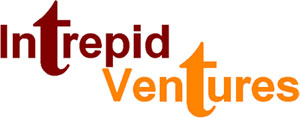In the Black Swan: The Impact of the Highly Improbable former options trader and NYU Professor of Risk Engineering Nassim Nicolas Taleb looks at the outsized impact of unexpected outlier events. The coronavirus pandemic that’s locked down the world and battered the payments industry is a classic Black Swan. It’s easy to see in retrospect but was outside the experience, and therefore off the radar, of Western policymakers.
The economy is nosediving into a depression because of Covid-19-induced government business closures. Counties representing 96% of US national production are locked down. JPMorgan forecasts 2nd quarter GDP will fall 40%. Bearish fund manager Crispin Odey says “The fall in global gross national product for this year will echo 1931-32.” Former Trump economist Kevin Hassett also warns the coronavirus could cause another Great Depression.
Borders worldwide are closed. International travel has ground to a halt. Consequently highly-profitable cross-border payments at the physical pos have disappeared. Covid-19 has however had a salutary effect, curbing merchants fleecing unsuspecting cardholders with Dynamic Currency Conversion.
Domestic payments in many but not all sectors have plummeted.
The number of people flying in the U.S. on Tuesday April 7th was down a whopping 95% yoy.
Hospitality has been hard hit. Shift 4’s hospitality and restaurant transactions April 2-8 in California, Nevada, New York, Texas and Florida against February 2-8 were down 94%, 96%, 91%, 91%, and 90%, respectively. For like-for-like-merchants ACI Worldwide reports April 1-8 global online ticketing and travel transactions down 98% and 92% yoy, respectively.
Millions of SMEs are closed. Many won’t recover.
Department stores like Dillard’s, Kohl’s, Belk, Macy’s, Saks, Neiman Marcus, JC Penny’s and Sears are closed. Covid-19 will cull the already struggling herd.
Closed businesses means no payments, no transaction fees for acquirers, networks, issuer processors, and issuers.
However, select sectors are booming in the crisis. ACI Worldwide reports like-to-like merchants’ online gaming and retail payments April 1-8 up172% and 58% yoy, respectively. March gun sales were up a whopping 85% yoy.
The strong are becoming stronger. Walmart’s March sales were up 20% yoy. Amazon’s hiring 100,000 workers. While Costco March sales initially surged midmonth they ebbed because of social-distancing measures and closing departments such as optical.
The coronavirus pandemic will have lasting effects on the payments industry.
It will accelerate the global migration from cash to electronic payments. Merchants and consumers are increasingly reluctant to handle potentially contaminated cash. NYC lawmakers may rue banning merchants banning cash.
Fear of the virus will spur greater interest in digital currencies.
Facebook pivoted from its plans announced last year, to launch a global digital currency and payment system, which provoked a din of hostility from regulators and politicians worldwide. The Libra Association’s rethink will keep Libra’s transaction ledger permissioned and back its stablecoins with each jurisdiction’s national currency, rendering them akin to electronic banknotes. That won’t threaten government monopolies creating money.
Signature Bank and Chase already have digital dollars for B2B payments. Wells Fargo Digital Cash will launch this year. They could be repurposed for retail payments.
Fear of touching will spur further reductions in payments friction at the pos.
Since the mid-nineties Mastercard and Visa have tried in vain to interest US banks, merchants, and consumers in contactless payments. Covid-19 is more persuasive. Banks are rushing to put contactless cards in consumers’ leather wallets.
Pos signatures will disappear. March 23, 2020 Mastercard reminded acquirers payments at the physical pos by card or mobile phone don’t require signatures.
The Wuhan virus is stoking protectionist sentiment. Borders and control of critical supply chains for ventilators, masks and drugs, are at the fore. Many nations and the supranational EU view payments as critical infrastructure.
The EU wants a pan-EU payment system to take resented American Mastercard and Visa down a notch. Playing to Brussels’ sentiment, the EACB, EBF and ESBG decry intra-EU cross-border payments only being possible because of “a few global, non-European market players,” i.e. Mastercard and Visa, and hail policymakers’ call to create European pan-European payment solutions.”
Mastercard and Visa will face increased protectionist headwinds worldwide.
Washington raining trillions of dollars on the economy may mitigate the immediate pain, albeit at a dangerous long-term cost. However, the economy and payments industry can’t fully recover until there’s a vaccine(s) and/or effective treatments. As of April 6th there were more than 200 clinical trials of coronavirus treatment or vaccines in process or recruiting test patients. Covid-19 will be vanquished.
Vaccinated, Americans will return to bars and restaurants, fly to Europe for business and holidays, and again take cruises. And a battered and changed payments industry will return to growth.

